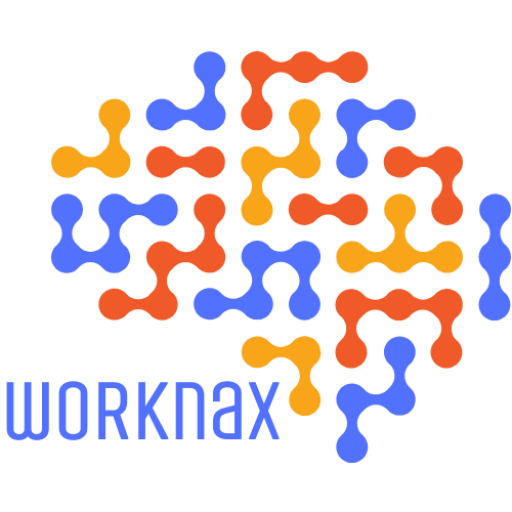Anúncios
In today’s fast-paced digital world, programming has emerged as an essential skill, not limited to aspiring developers but extending to professionals across various fields. As industries become increasingly digitized, the ability to code is invaluable, enabling individuals to navigate and contribute to the digital landscape. Learning to program can serve as a catalyst for numerous opportunities, whether you aspire to switch careers, enhance your current role, or embark on personal projects.
The idea of mastering programming within a short timeframe, such as three months, may initially seem overly ambitious, but with well-defined strategies, unwavering dedication, and access to quality resources, it can indeed become a reality. Setting realistic goals at the outset is a crucial first step in your programming journey. Consider what you want to accomplish in three months, whether that’s building a specific project, acquiring proficiency in a programming language, or boosting your confidence with coding fundamentals.
Writing down clear objectives will provide direction and motivation throughout your learning process. It’s vital to adjust these goals as you progress, enabling you to stay focused and maintain momentum. Regularly revisit your objectives to track your progress, celebrate achievements, and recalibrate your objectives when necessary. This ongoing assessment will enhance your learning experience and ensure you remain on course to meet your aspirations.
Choosing the right programming language as a starting point is of paramount importance. Popular languages for beginners include Python, JavaScript, and Ruby, each with unique features and advantages. Among these, Python is particularly recommended due to its readability and simplicity, allowing newcomers to grasp programming concepts without being overwhelmed by intricate syntax. Before making a decision, take time to research these languages, considering how they align with your specific goals and interests.
Once you’ve identified the programming language that resonates with you, the next step is to gather quality educational resources. The internet is teeming with platforms offering structured courses, including Codecademy, freeCodeCamp, and Coursera, providing valuable insight across various languages and skill levels. Complementing these online courses with books, tutorials, and other materials will cater to diverse learning preferences, whether through video lectures, interactive coding exercises, or written guides.
In parallel with gathering learning materials, joining a community or study group can significantly enhance your motivation and comprehension. Engaging with like-minded individuals facilitates collaboration, idea sharing, and provides the support you need during your learning process. Consider participating in online forums such as Stack Overflow, where developers around the globe discuss coding challenges, or look into joining coding bootcamps to expand your network and knowledge.
A strong support system can foster accountability and help create a positive learning environment. The importance of hands-on practice cannot be understated; active coding is critical for reinforcing your theoretical knowledge and cultivating problem-solving skills. As a beginner, start with manageable projects and gradually increase complexity as your confidence grows. Websites like LeetCode and HackerRank offer coding challenges to sharpen your skills while adding an element of enjoyment to your learning experience.
Moreover, seeking out opportunities to contribute to open-source projects can be hugely beneficial. These projects offer real-world experience, provide a platform for collaboration with experienced developers, and enable you to create a portfolio showcasing your skills. GitHub serves as an ideal repository for finding open-source projects to contribute to, so seek out initiatives that resonate with your interests. Don’t hesitate to communicate with project maintainers for guidance and mentorship as you navigate this collaborative landscape.
Effective time management is essential in committing to a three-month learning plan. Establishing a structured schedule can help you allocate time for studying, hands-on practice, and working on projects. Consistency is key to your success, so aim to dedicate a specific number of hours weekly to your programming education. Breaking your schedule into smaller, manageable chunks will make the learning experience less daunting, and remember to take breaks to avoid burnout.
Maintaining a balanced approach is vital for the long-term retention of skills you acquire. Diving into programming also involves grasping foundational concepts such as algorithms and data structures, which are integral to computer science. Invest time familiarizing yourself with commonly used algorithms including sorting and searching, as well as essential data structures like arrays, stacks, and queues. Many online courses cover these topics, but reinforcing your understanding through practical problem-solving helps solidify your knowledge even further.
Integrating coding into your daily routine can greatly enhance your learning experience. Set aside time each day for programming challenges or devote an hour to work on a personal project. Creating a consistent routine will help embed programming into your life, preventing feelings of overwhelm as your skill set expands. Whether during lunch breaks or in the evenings, aim to make coding a habitual part of your day, and you will witness your abilities flourish before your eyes.
Understanding the significance of debugging is another critical aspect of your programming journey. As a beginner, learning to identify and resolve errors in your code is a skill that develops with experience. Embracing mistakes as part of the learning process is essential—every accomplished programmer has faced errors and challenges along the way. Familiarize yourself with debugging tools in your chosen programming environment and practice reading error messages with care, nurturing a methodical approach to problem-solving.
Another vital element to consider in your programming education is understanding version control systems, with Git being the most widely used. Familiarity with Git will enable you to track changes in your code, collaborate effectively with others, and manage your projects seamlessly. GitHub serves as both a remote repository for your work and a social platform for developers. Invest time mastering the basics of Git commands, which will serve you well in both personal and collaborative projects.
As your confidence grows in your coding abilities, do not overlook the importance of continuous learning. The tech industry is characterized by rapid changes, and there is always something new to explore or learn. Foster curiosity and openness towards new concepts. Follow tech blogs, listen to podcasts, and watch YouTube channels that delve into programming trends and advancements. Engaging with the broader tech community can expose you to innovative ideas and practices, enriching your learning experience even further.
As you progress, be sure to focus on building a portfolio that highlights your skills and accomplishments. Showcase your projects, coding challenges, and contributions to open-source initiatives. A well-crafted portfolio can set you apart when pursuing job opportunities or internships in the programming field. Include clear descriptions of your projects, detailing the skills you utilized, and consider creating a personal website to host it.
The real-world application of your skills can sometimes be the best teacher. Once you feel confident in your capabilities, consider applying for internships or freelance opportunities. Gaining experience in a professional environment boosts your coding skills, exposes you to industry practices, and teaches you how to work collaboratively on software projects. Even small projects for friends or local businesses can offer invaluable learning experiences that contribute to your growth as a developer.
Additionally, participating in coding challenges and competitions can serve as a fantastic motivator. Platforms like Codewars, TopCoder, and Google’s Code Jam host events that can test your skills while encouraging accelerated learning. In addition to improving your coding abilities, these competitions provide a chance to engage with a global community of programmers and potentially earn rewards that can enrich your career journey.
It is essential to recognize that mistakes are an inherent part of the learning experience, and building resilience is crucial. Don’t let frustration discourage you; instead, view challenges as opportunities for growth and improvement. Embrace the learning curve associated with programming, allowing yourself to celebrate even the smallest victories. Every piece of code you write, whether it succeeds or fails, will contribute to your overall development as a programmer, adding to your wealth of experience.
After dedicating three months to learning and practice, conduct a thorough self-assessment to evaluate your growth. Consider how much you’ve learned, the projects you’ve completed, and the skills you’ve gained during this journey. You may be surprised at your progress, highlighting the effort and commitment you’ve invested. Use your self-assessment as an opportunity to refine your ongoing learning goals and outline the next steps in your programming journey.
In conclusion, embarking on a programming journey with the intention of mastering skills in three months is indeed an ambitious yet attainable goal. By adopting the right mindset and implementing effective strategies, you can optimize your learning experience. Remain committed to your objectives, engage in hands-on coding, utilize the wealth of available resources, and connect with other aspiring developers in the programming community. Always remember, the journey does not conclude after three months; instead, it marks the beginning of a lifelong pursuit of knowledge and skill development in the fascinating world of programming. Keep expanding your boundaries, welcome challenges, and relish the exhilarating journey of becoming a proficient programmer. Happy coding!



